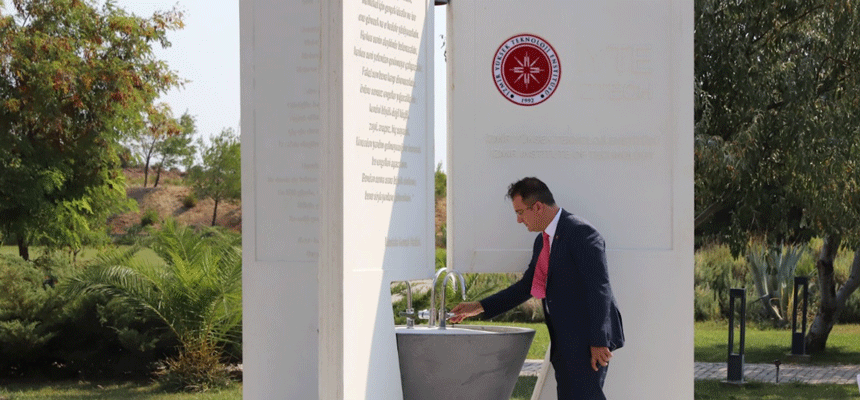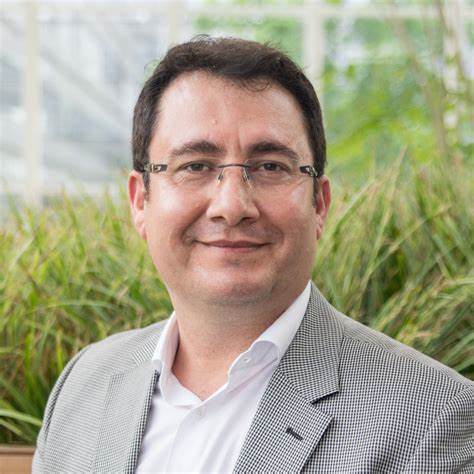
An increasing number of private companies and academic institutions is becoming aware of the importance of adopting measures that have low impact on the environment. To be compliant with the three r's that define circular economy—reduce, reuse, recycle—many universities are drafting policies calling for clever use of energy and plastic, and avoiding irresponsible waste disposal. Briefly, to become sustainable places.
Universities, in particular, have an important mission: raising future generations and acting as role models through their sustainable decisions and practices. With a number of recent 'green' initiatives, the Izmir Institute of Technology (IZTECH), in Türkiye, is indeed contributing to the planet's well-being.
"Many activities we perform in our daily life cause very serious environmental problems, including global climate change," observed Yusuf Baran, a Professor in molecular biology and genetics at IZTECH, where he serves as Rector, and as Chair of the Board of Directors of the İzmir Technology Development Zone since October 2018. He is also a former member of the Global Young Academy. "With this awareness, we, at the Izmir Institute of Technology, started multiple studies in different fields, with the aim to become a model campus of sustainable initiatives, such as recycling," he added.
Baran's scientific interests focus on the molecular mechanisms of cell death, drug resistance in cancer, biochemical pathways of tumours, and on science and technology policies. In 2016, he was among the participants in the American Association for the Advancement of Science-TWAS science diplomacy summer course, held in Trieste, Italy, from 11 to 15 July.
In 2015, he became a TWAS Young Affiliate, and—as it is the case for all researchers who complete their five-year term in that capacity—in 2019, he became a TWAS Alumnus. Young Affiliates and Alumni are encouraged to remain engaged with the Academy and to participate in TWAS initiatives, which is something that Baran has been doing all along. Additionally, from 2016 to 2021, he served as an Executive Committee member of TWAS Young Affiliates Network (TYAN)—launched in 2016 to recognize the most accomplished young scientists from the global South.
"Today, the concept of sustainability has come to the fore," he said. "At IZTECH, we started some studies aimed at transforming our buildings into energy-efficient structures. We have applied to, and received funding from, the European Union, through our Ministry of Energy. This funding allows us to use the geothermal resources (energy generated from the earth) instead of fossil fuels, for the cooling and heating needs of the campus itself."
Currently, there are five wind turbines producing 15 megawatts of energy on IZTECH campus, the equivalent of 24-hour electricity production for nearly 14,000 households, for a year. And efforts are continuing, including the plan to install solar energy panels on the roofs of all the campus buildings.
And this is not all. The university administration keeps on working to ensure that the tree branches that are pruned on the campus are ground and used as fertilizers; that the waste food from cafeterias becomes compost and is used to feed the animals on campus; and that the wastewater is used for garden irrigation.
But the flagship initiative is a recent accomplishment initiated by Yusuf Baran. "We built three fountains, in different locations of our campus, each providing 1.5 tons of potable water per day, and filling about 9,000 half-litre bottles per day," Baran explained. "With our fountains, we not only provide our students with free water, but also reduce the use of plastic bottles, thus preventing a huge amount of plastic from becoming garbage every day."
Programmes at IZTECH also reflect the commitment of the administration and of individuals such as Baran, for sustainability has been included in masters' and doctoral courses. Further, the Department of International Water Resources focuses on questions related to the best use of water, and explores possible solutions to water-related challenges.
"With our studies on zero waste, clean energy, recycling practices and sustainability, we are not only creating a model, but we are also educating, informing and encouraging our local, national and international stakeholders to act in line with our sustainability goals," Baran concluded.
Cristina Serra

